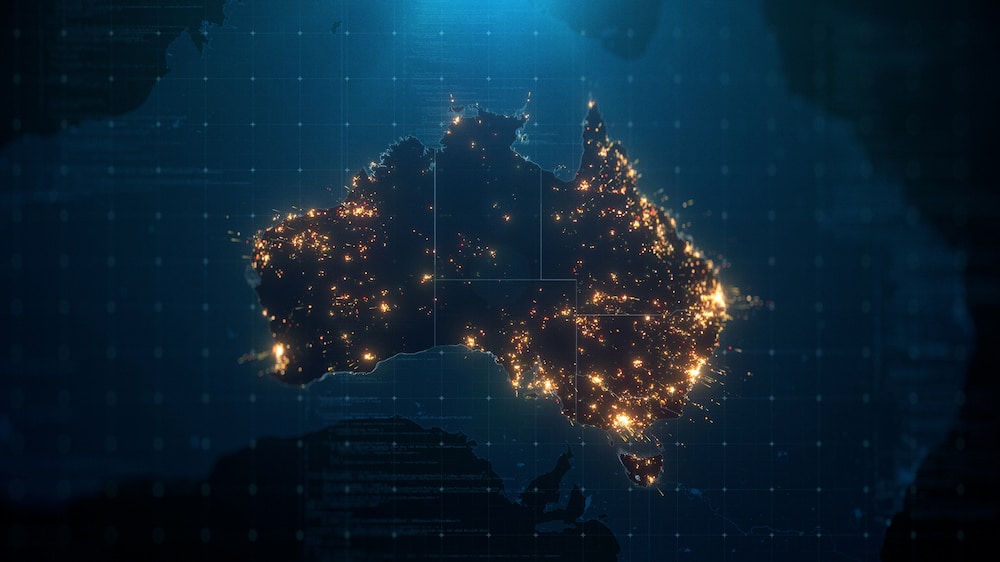Many city dwellers will never see the stars or the Milky Way in all their glory, because of artificially brightened night skies. But on Tuesday 16 May, Canberrans can gaze at the stars and learn about night sky conservation and light pollution at an event organised by the Australasian Dark Sky Alliance (ADSA).
The educational charity’s event, A wildlife Ark in the Dark, will be held at Wildbark, the Mulligan’s Flat learning centre, from 6pm to 10pm (bookings essential).
Special guests Professor Fred Watson AM, Australia’s astronomer-at-large and ADSA patron; Glen Nagle, from the Canberra Deep Space Communication Complex; and Ruskin Harley, from the International Dark Sky Association (IDSA), will speak about night conservation, industry opportunities, and ecology. Peter Swanton, an astrophysicist and Gamilaraay man, will talk about Indigenous astronomy and dark sky preservation of Indigenous sky knowledges.
There will be stargazing with the Canberra Astronomical Society, Wildbark ranger talks, acoustic music, photographic exhibitions, and children’s activities.
Mulligan’s Flat will also host twilight guided walks, so visitors can watch reintroduced species like smoky mice, eastern bettongs, and eastern quolls – “truly a must-see experience in Canberra,” Mr Swanton said.
- Gateway to Mulligan’s Flat sanctuary opens (18 November 2022)
- Shaping Mulligans Flat Woodland Sanctuary’s next 25 years (11 December 2020)
“Bringing people out at night is simply the best way to engage the community in conservation,” Philippa Bell, one of five ADSA Youth Ambassadors, said. “We’re looking for the next generation of stargazers and ecologists to help save the night sky.”
The event is held on the UN’s International Day of Light, marking the anniversary of the first successful firing of the laser, and celebrating light’s role in science, culture, education, and sustainable development.
But one can have too much of a good thing, scientists and ecologists think.
Light pollution (the inappropriate or excessive use of artificial light at night) is the fastest growing pollutant in the world, increasing by 10 per cent every year, ADSA states. The World Atlas of Artificial Night Sky Brightness (2016) revealed that 80 per cent of people live under skyglow (brightening of night sky over inhabited areas).
The IDSA states that much outdoor lighting used at night is “inefficient, overly bright, poorly targeted, improperly shielded, and, in many cases, completely unnecessary. This light, and the electricity used to create it, is being wasted by spilling it into the sky, rather than focusing it onto the actual objects and areas that people want illuminated.”
“Canberra is certainly better than other major Australian cities such as Sydney, Melbourne, and Brisbane,” Mr Stanton said. “But it is much worse than regional and remote areas that are far away from any major cities.”
Canberra, he notes, has had light pollution measures in place for a long time, because the ANU had research telescopes at Mount Stromlo Observatory until the 2003 bushfires. (Those telescopes have since been moved to the Siding Spring Observatory, in Coonabarabran, NSW.)
“But … as Canberra has grown a lot larger over the last 20 years, light pollution has degraded the skies significantly over time,” Mr Swanton said.
Mount Stromlo Observatory is west/southwest of Canberra; looking east/northeast towards the city, the light pollution is “quite bad”, Mr Stanton says, but looking west towards the Brindabellas, the sky is still quite dark.
“Light pollution obviously has a huge effect on astronomy that uses visible light (optical astronomy),” Mr Swanton said. “Light pollution clouds our ability to see faint details, especially with the sensitivity that our telescopes have.
“As an Indigenous astronomer, I am also, and perhaps more so, concerned with the lesser explored problems of light pollution, including cultural, health, and environmental impacts.”
The IDSA warns that light pollution increases energy consumption, wasting energy and releasing millions of tons of carbon dioxide every year.
It harms human health: disturbing the body clock and the sleep-wake cycle increases risks for obesity, depression, sleep disorders, diabetes, and cancer.
“Light pollution [also] has a significant effect on wildlife and their natural habitats,” Mr Swanton warns.
Millions of baby sea turtles die every year, for instance, because they confuse artificial light from cities for the setting sun; when they hatch on the beach, they head to the city, rather than into the ocean, he explains. Birds rely on seasonal cues to know when to migrate – but light pollution causes some birds to migrate too early or too late, which means they nest and forage at the wrong time.
Light pollution also affects the availability of food; stops fledging birds from flying; and stops nocturnal animals from feeding in lit areas, the Department of Climate Change, Energy, the Environment and Water adds.
The IDSA encourage the public to minimise the light from their own home at night: only use lighting when and where needed; make lights no brighter than necessary; minimise blue light emissions; eliminate upward-directed light; properly shield all outdoor lights; keep your blinds drawn to keep light inside; and if safety is a concern, install motion detector lights and timers.
ADSA have guidelines about light fittings.
“As an individual, the best way to help is to become educated and aware of light pollution,” Mr Stanton said. “When people are aware of the problems and potential solutions, they are able to do things like contacting local councils and governments to have potential light pollution problems addressed. The best way to learn is to get involved with events such as the ADSA event. The ADSA website also has a collection of videos and resources to get you started.”



